News: September

However, this tenor is very generous. The brambles are full of blackberries, the antxumelos or patxaran to the black-elorri, the eras stuffed with red fruits... and also, if it has rained and has made a temperate environment, there can be a blow of mushrooms. Animals, of course, do not miss this unique opportunity to store energy and eat with rage knowing what comes to them or...
Looking at the last wells
In the last visit to the wells that have not dried up there have still been numerous testimonies, but many of them were about to become frogs or toads. To be able to dismiss the aquatic life it is necessary, among other things, to aspire the tail and develop legs and lungs. Once finished, they will live on the ground but will have to keep the skin always moist.
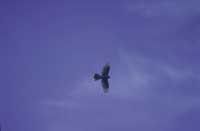
In the same well we also find a new generation snake with tie. Young people of this kind have to try to hunt and devour as much as possible so that they are fit and strong when winter comes. And it is that throughout the winter they will live thanks to the accumulated energy and if they do not grow enough, they will not be able to survive.
Vulture
In a big revolt, dozens of griffed vultures eat dead goats in a sheep. In these meals we will see little elegance but a great ability to clean the meat. The goat has not lasted long, about a quarter of an hour since the saí began to move. After eating meat, intestines, tendons and all the bars, they have left only skin and bones. However, these scavengers have done an unbeatable job: recycle the energy of the basket and thus avoid the pollution that can generate.
From recycling
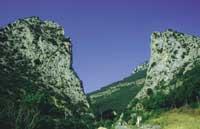
The recycling of the dead goat is not over here. In fact, the bearded vulture living in this area of the Pyrenees begins its second step. This peculiar vulture feeds on bones and their beds and after cleaning them nothing remains of the dead animals. A surprising scavenger that can swallow large bones and flies with legs.
When you see yourself in front of some rock, release the bone to break by hitting the ground. Then, it lands to find and swallow these pieces. Unfortunately, this elegant bird is very scarce. Although the population has improved slightly in recent years, in the Pyrenees, currently there are only about 70 nests of mammals.
Time of migration of many birds
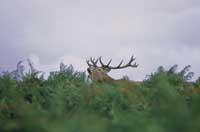
Although in the previous two months there has been movement of birds, this September becomes spectacular. For example, from the home window, we can see that for a few days the subwhite swallows gather in the threads of light and that from one day to another there are no units.
They headed towards the territories beyond the Sahara desert, where they remain until spring. Turtledoves and quails also migrate to Africa on this tenor, but abrupt changes in the environment and hunting make them not look as much as before.
This is the best month to see predators migrate. On a good day of passage you can see gavilans, azores, red hawks, peregrine falcons, small eagles, culebreras, fishermen, white and blue miracles, etc., and it is an opportunity to learn to differentiate different species.
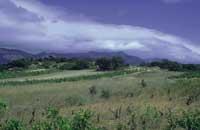
Most of these predators are gliders and try to take the thermal currents that occur when heating the wind to be able to travel with the least effort. The hours at noon can therefore be the most suitable for the observation of these birds.
Look at Txingudi, Urdaibai and the other wetlands as there may be a lot of movement of mosquitoes. In the Pyrenees, in Lindux, Ibañeta, Lizarrieta and Organbidexa, we already have prepared ornithologists from different groups to censor migrants annually. A unique opportunity to learn about migration and meet many friendly people.
Shepherds also in migration, in the Roncalese sheep
Before the first snowfall arrives, the shepherds will take the cattle and take the descending path. Therefore, in the area of San Miguel, normally, in the upper meadows few animals are observed.
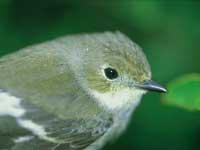
In short, similarities can be sought between these grassland changes and the migration of the aforementioned birds. Thus, both remain in different seasons of the year in places with the most abundant food and the best atmosphere.
Although there are usually no large displacements with the flock, in Navarre there are shepherds who travel 6-7 days and about 130 km. In the Roncalese sheep, for example, 20,000 heads move every year from the upper pastures of the Pyrenees to the lands of the Bardenas that will winter.
Otter on fresh waterfalls
There are few mammals that have led a bad march in the European area like otters. This poor animal has had to suffer from everything: in addition to polluting the rivers and destroying the riverside vegetation, man tried to eradicate it from half of the excuse that gave rise to fishing. Otter, however, is one of our most beautiful animals. It is cheerful and playful, swimmer and fisherman, and a good indicator of the health of the rivers.
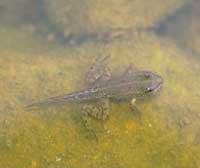
In Euskal Herria only inhabits relatively well preserved rivers: Aragon, Ega, Berries, Zadorra and not much more. At this time, her offspring have grown and her mother is teaching herself to find the best pastures. In this time when there is little temperate water and, as always, in the hope of fish, they like to walk around fresh waterfalls. You can hardly see them, but you can still find clues.
The loving tenor of Orein
Maaaaaaaoooooooooooooo. From mid-month, in the forests of Gorbeia, Kinto and Irati, you will hear impressive spirits. We have deer, and as in this tenor they enter into zeal, they are in the fire. The males fight to attract the rivals of the surroundings to measure their forces. They compete for elegant branches and with this behavior a rigorous selection is given. The strongest males come out winners and it is they who will cover the females, ensuring a solid new generation. However, this intense day leaves the lords of the woods burst and when winter comes relatively early and strong... these magnificent mammals move with gravity.
Buletina
Bidali zure helbide elektronikoa eta jaso asteroko buletina zure sarrera-ontzian











